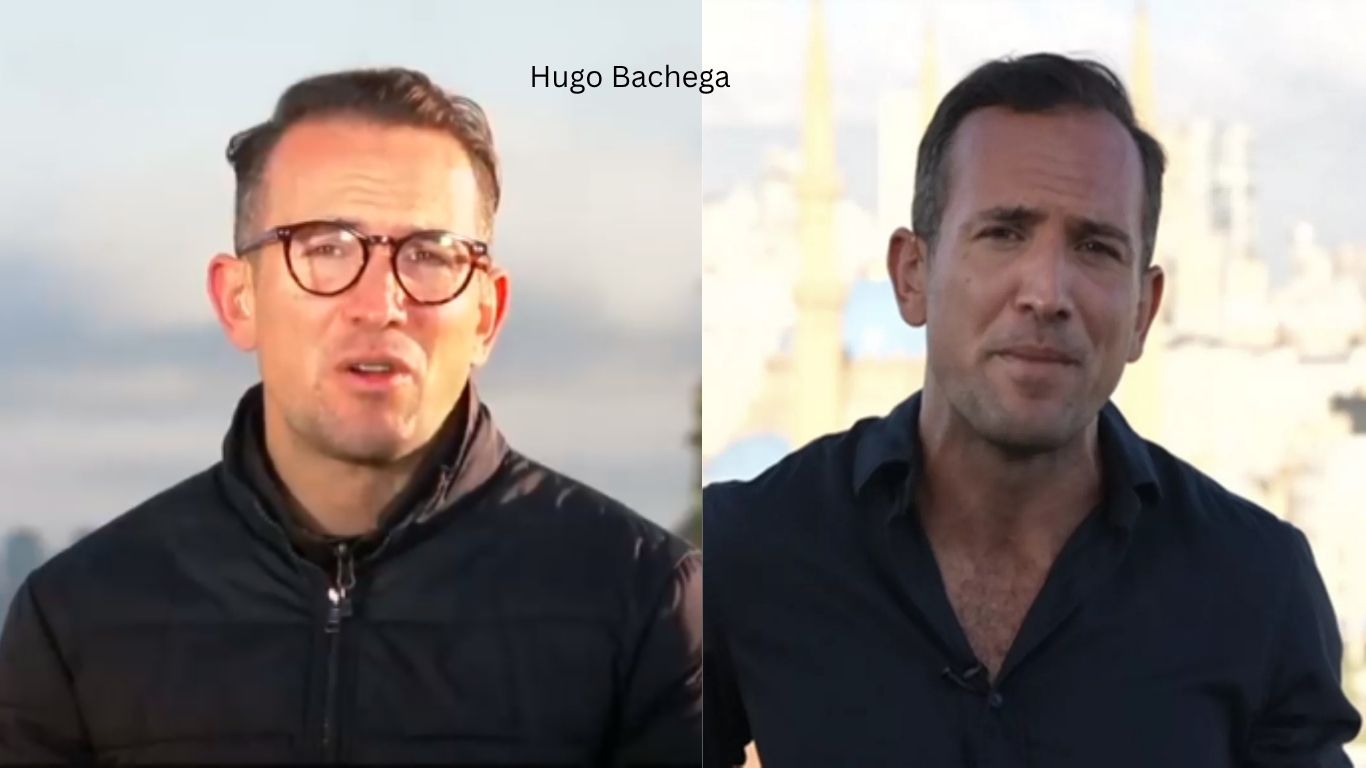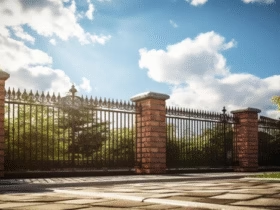In the ever-expanding world of global journalism, some voices stand out not just for what they say, but for how they say it. One such voice is that of Hugo Bachega, an international journalist best known for his insightful reporting on global affairs, especially from conflict zones. Yet, among viewers and readers alike, one of the most intriguing aspects of Bachega’s presence isn’t just his journalism—it’s his accent.
From TV appearances to online broadcasts, people often ask, Where is Hugo Bachega from? Why does he sound British, Brazilian, and international all at once? In this article, we explore the roots of Hugo Bachega’s accent, how it developed, and why it fascinates so many people.
| Category | Details |
| Title | Hugo Bachega Accent: What You Need to Know About His Unique Voice |
| Focus Keyword | Hugo Bachega accent |
| Content Type | Informational / Biographical Article |
| Target Audience | News followers, linguistics enthusiasts, BBC viewers, journalism students |
| Language | English |
| Word Count | Approximately 1000 words |
| Main Topics Covered | Hugo Bachega’s biography, accent origin, linguistic influences, global appeal |
| Tone | Professional, informative, engaging |
| Purpose | To explain the origin, evolution, and characteristics of Hugo Bachega’s accent |
| SEO Goal | Rank for searches related to Hugo Bachega’s voice, speech, or background |
| Primary Location Tags | Brazil, United Kingdom, BBC |
| Related Keywords | British Brazilian accent, BBC journalist voice, Hugo Bachega biography |
| Visual Suggestions | Image of Hugo Bachega reporting, audio waveform graphics, global map overlay |
| Meta Description | Discover the origins and uniqueness of Hugo Bachega’s accent shaped by his Brazilian roots and British broadcasting career. |
Who Is Hugo Bachega?
Before diving into his accent, it’s important to understand who Hugo Bachega is. A seasoned journalist, Bachega currently works as a foreign correspondent for the BBC, covering significant international developments. He has reported from Ukraine, Brazil, and the Middle East, and is known for delivering high-quality, on-the-ground coverage in challenging environments.
Born in Brazil, Bachega has built a career in international journalism that has taken him across continents. His work, language, and manner of speaking reflect this rich, multicultural journey.
Hugo Bachega’s Background: A Multinational Upbringing
Hugo Bachega was born and raised in Brazil, a Portuguese-speaking country known for its distinct Latin accent. However, unlike many journalists who remain local or regional in their work, Bachega ventured far beyond his home country.
He eventually moved to the United Kingdom, where he began working with major news outlets like Reuters and BBC News. Years of living in the UK and operating in an English-speaking, journalistic environment helped shape not only his fluency in English but also the tone, rhythm, and accent of his speech.
What Does Hugo Bachega’s Accent Sound Like?
Listeners often describe Hugo Bachega’s accent as a hybrid—a mixture of British and non-native English speaker characteristics. Here’s what makes it unique:
- British Influence: Having worked extensively in the UK, Bachega has adopted many elements of British pronunciation and phrasing. This includes the intonation, softer “r” sounds, and the clarity commonly heard in British English.
- Brazilian Underpinning: Despite the British influence, subtle hints of his Brazilian Portuguese roots remain detectable. This is most noticeable in certain vowel pronunciations and intonation patterns.
- International Clarity: As a journalist, Bachega speaks with what some call a “neutral global English”, designed for clarity and accessibility across diverse audiences. This style is often adopted by multilingual broadcasters working for international media like the BBC, CNN, or Al Jazeera.
Why Is His Accent So Fascinating to Viewers?
There are several reasons why Hugo Bachega’s accent draws so much attention online:
- Unexpected Combination: Viewers often expect a typical Brazilian accent when they hear that someone is from Brazil. Bachega’s voice, with its clear British inflection, surprises many.
- Cultural Curiosity: In the age of social media and YouTube, accents have become a topic of global curiosity. People love decoding where someone might be from based solely on how they speak.
- Clear and Commanding: His accent is clear, professional, and soothing—a quality many viewers associate with trustworthy journalism. In conflict reporting, the way something is said can matter almost as much as the facts themselves.
- Identity in a Global World: Bachega represents a new kind of journalist: international, multilingual, and adaptable. His accent reflects a global identity, which resonates with audiences from all over the world.
Can We Define Hugo Bachega’s Accent in One Word?
Not really.
Hugo Bachega’s accent is best described as transnational or hybrid. It’s the product of:
- A Brazilian upbringing
- A British work environment
- Years of experience reporting in multiple languages and cultures
In many ways, his accent is less about where he’s from and more about where he’s been. It’s a reminder that in today’s interconnected world, our voices often carry the history of our travels and experiences.
How Do Accents Evolve for Multilingual Professionals?
Bachega’s accent is also a fascinating example of linguistic adaptation. People who speak multiple languages or live in multiple countries often experience what’s called “accent drift“—a natural shift in pronunciation influenced by surroundings, work, and social circles.
For journalists, especially those appearing on camera or broadcasting internationally, accent neutralization or adaptation is sometimes encouraged to ensure comprehension and audience reach. Over time, these influences blend, creating an accent that doesn’t neatly fit into any one national category.
What Can We Learn From Hugo Bachega’s Voice?
There’s a powerful lesson in Hugo Bachega’s accent: identity is fluid. In a world where we often try to categorize people by language, accent, or nationality, Bachega reminds us that we are shaped by experience, not just geography.
His voice tells the story of a journalist who crossed borders not just physically, but linguistically. It reflects adaptability, professionalism, and a global mindset—qualities increasingly vital in journalism today.
FAQs:
1. Where is Hugo Bachega from?
Hugo Bachega is originally from Brazil. He was born and raised there before moving abroad to pursue his career in international journalism.
2. Why does Hugo Bachega have a British-sounding accent?
Although he is Brazilian, Hugo Bachega has lived and worked in the United Kingdom for many years, particularly with the BBC. His accent reflects strong British influences combined with his Brazilian roots.
3. What makes Hugo Bachega’s accent unique?
His accent is a blend of Brazilian Portuguese undertones and British English pronunciation. This hybrid tone gives him a clear, neutral, and globally understandable voice—ideal for international broadcasting.
4. Has Hugo Bachega ever addressed his accent publicly?
As of now, Hugo Bachega has not made any official public statement about his accent. However, his career trajectory and multicultural experience naturally explain its development.
5. Is Hugo Bachega’s accent common among international journalists?
Yes, many international journalists develop neutral or mixed accents due to working across countries. Hugo Bachega’s voice is a great example of this globalized communication style.
Conclusion: More Than Just an Accent
Hugo Bachega’s accent is more than just a curiosity—it’s a symbol of the globalized era we live in. It speaks of multiculturalism, cross-border experiences, and the power of language to unite rather than divide.
For viewers wondering where that unique voice comes from, the answer is simple: it comes from everywhere he’s been.
If you’ve ever found yourself captivated by the way Hugo Bachega speaks, you’re not alone. His voice is clear, calming, and uniquely global—a reflection of a journalist who belongs not to one country, but to the world.












Got a Questions?
Find us on Socials or Contact us and we’ll get back to you as soon as possible.